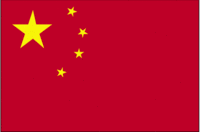
Currency revaluation should not impact end-user prices for IT goods. China's currency revaluation raised the cost of paying worker salaries at the thousands of electronics factories across the nation, but that won't impact end-user prices for IT goods like PCs and servers, analysts say.
On last Thursday (07.22.05), China dropped a decade-old peg to the U.S. dollar and said it will allow its renminbi currency to fluctuate more freely against a group of currencies. Initially, the change amounts to a 2 percent rise to 8.11 renminbi per dollar. Before the revaluation, a dollar bought 8.28 renminbi.
It may seem like a small change, but currency fluctuations can have a huge impact on product prices -- and China makes more notebook computers, PCs and other finished electronics goods than anywhere else.
Even though the majority of this equipment is built in China, (the revaluation) will have a fairly small impact on the cost of making these products.
The majority of PC and laptop parts -- and the most expensive, like central processors and flat screens -- won't be affected by the currency change anyway because they're not made in China. Labor is the main value added at Chinese electronics manufacturing plants, and that's a fairly small part of overall cost.
The stronger renminbi also offers some benefits to companies operating in China that should help offset higher labor costs. Since most global commodities and even computer parts prices like DRAM (dynamic RAM) are quoted in U.S. dollars, Chinese factory owners should be able to get more for their money thanks to the currency change.
For example, Merrill Lynch estimates that Canon will have to pay an additional ¥9 billion ($82 million) for production at its digital camera and other imaging plants in China due to the currency revaluation. But the Japanese company will save money on parts, offsetting about half of the higher production bill.
Over the long term, China's currency will likely rise slowly -- no more than a few percentage points per year over the next several years, said Duncan Wooldridge, an economist at investment banking firm UBS in Hong Kong.
A few points a year could add up over time and start a trickle of offshoring from China to less-expensive developing nations like Vietnam to keep costs down. But in the next few yeas, the electronics industry won't see much impact from China's currency revaluation.